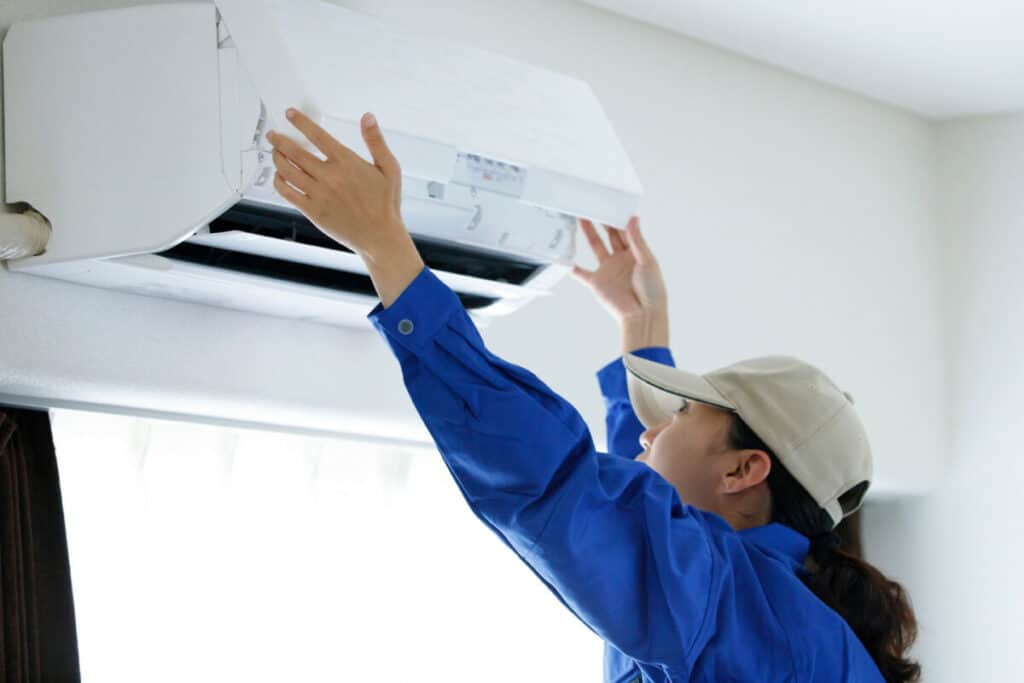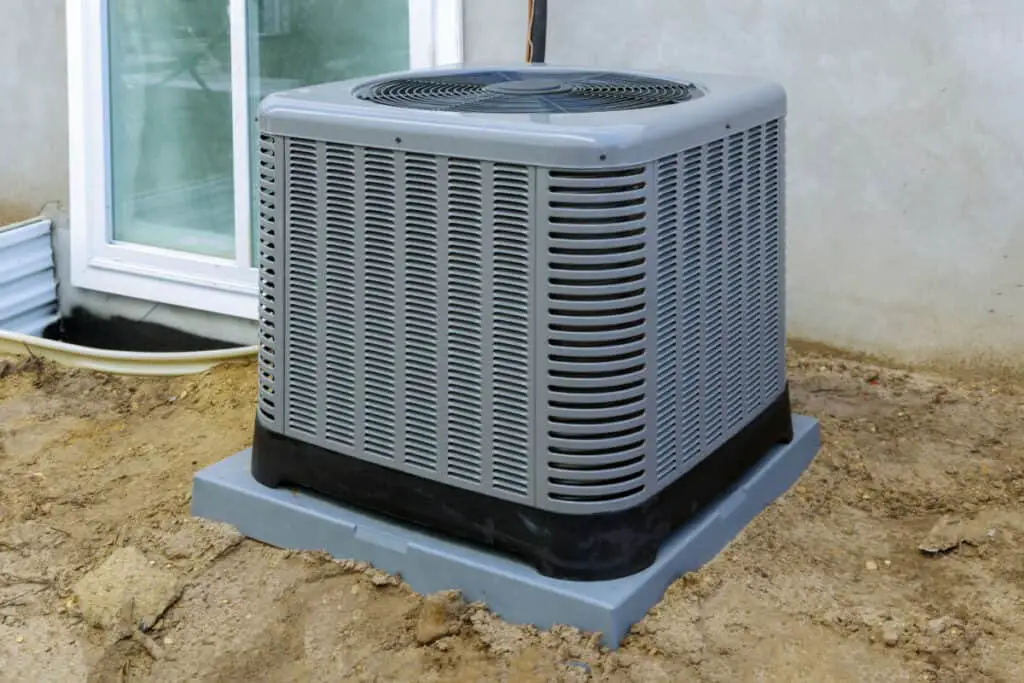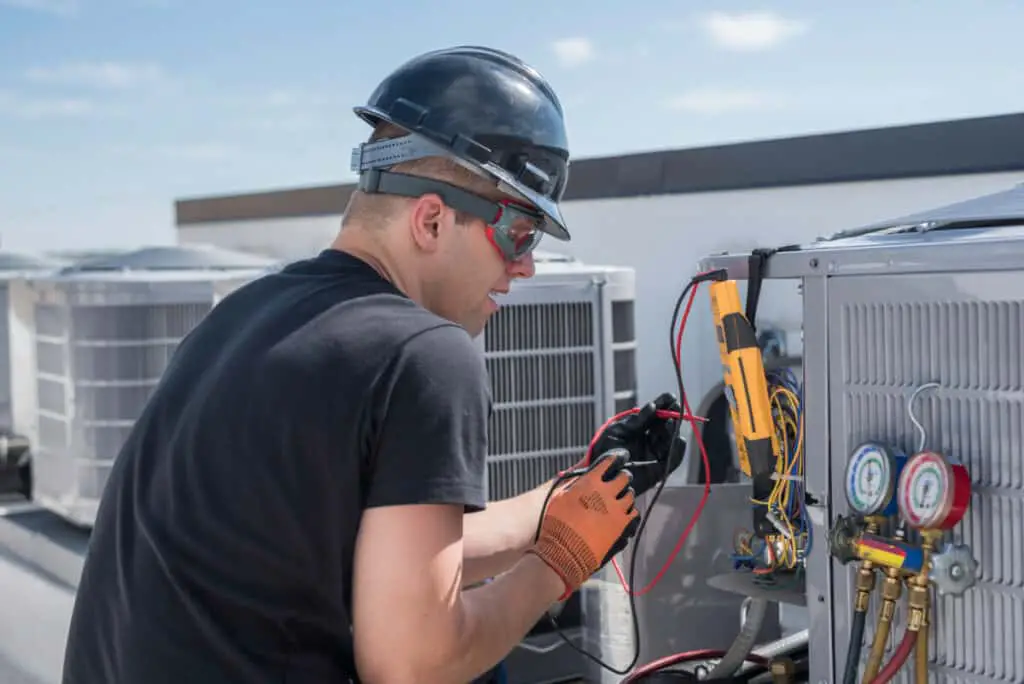
Air conditioners are one of the most commonly used appliances in the United States. These temperature-regulating units allow modern homeowners to live comfortably, regardless of hot or cold weather. While this is a wonderful luxury, AC units are so seamlessly integrated into our daily lives that few of us know how to recycle or dispose of a old one when it eventually needs to be replaced.
Air conditioning (AC) units contain a variety of electrical, chemical, and recyclable components. It is safest to hire a professional to uninstall and disassemble the AC unit properly. Throwing AC units into landfills is illegal, so always investigate local scrap yards and recycling programs.
Local scrapyards will also often accept used AC units for their viable parts, sparing both you and the environment the risk of illegally sending the unit to a landfill. If you’re determined to remove and recycle the AC unit on your own, here are a few guidelines to follow, and a few reasons why it’s a better idea to hire a professional.
How to Correctly Dispose of an Air Conditioner
First, remove the panels and doors from the unit. Removing the doors prior to recycling the AC unit helps prevent critters from getting stuck in the unit if it ends up outside or in a scrap yard for extended periods of time. Next, hire a professional to remove the coolant or refrigerant; this liquid is hazardous and should never by handled by anyone who is inexperienced.
There are two common types of refrigerants used in AC units: R-22, which is commonly found in older models and contains ozone-depleting chemicals called chlorofluorocarbons (CFCs); and R-410A, which is found in newer models and contains hydrofluorocarbon. HVAC technicians are professionally trained and licensed to be able to handle toxic refrigerants. They track everything about the refrigerant, including storing, reclaiming, charging, and conditioning, so you can completely trust them to do the job safely and properly.
Once the coolant or refrigerant is removed, you have three options: Bring the AC unit to a local scrapyard, contact your city’s waste management about appropriate recycling facilities, or contact local waste removal services that will come pick up the unit and handle the process for you.
Is it Really Illegal to Throw Away an AC Unit?

Yes, it really is illegal to throw away an air conditioning unit. In some cases, illegal waste claims are nothing more than rumors inspired by environmentally friendly efforts, but in the case of AC units, the law is legitimate. This is due to the refrigerating coolant inside.
Coolant chemicals are harmful and should be kept out of landfills because they contribute to climate change, harm local ecosystems and native species, and release toxic chemical substances. These substances, some of which are believed to be carcinogens, can seep into the ground of landfills and contaminate local water supplies. This is extremely hazardous to all humans living in the area and is therefore not worth the risk. Save yourself time and money by disposing of the unit responsibly. Here are a few ways that you can go about the disposal process.
Disposal Options
Air Conditioner Bounty Program
This program will often pay customers or give a discount when they return appliances that no longer function.
Local disposal agencies have curbside pickup options for air conditioners, as well as a variety of other appliances used. They dispose of these items through private parties, where the appliance can be sent to other countries to make new appliances.
Debris hauling companies are useful when trying to get rid of an old AC unit. A variety of different hauling companies will pick up the things left on the driveway, and they will do all the work of taking the appliance somewhere else for you. Smaller ones will pick them up to recycle and dispose of according to specific guidelines.
There are many different donation stores that accept old air conditioners (on the premise that they are still reasonably functional) in order to provide people in need with more affordable units.
Sometimes, you can repair or refurbish your AC unit by simply fixing leaky pipes, broken fans, and clogged filters. Installation services sometimes accept old AC units that have potential, refurbishing them for other customers.
If the air conditioner can still be properly used, then it is okay to sell it to someone else. You can sell AC units online or through local classified ads. This is a great option if the unit is still in working order and you’d like to make a bit of money.
What Can Be Recycled

There are two main reasons that it is important to properly dispose of an AC unit. Not only will you help protect the environment from the toxic chemicals found in refrigerants, as we’ll discuss shortly, but you will also help salvage valuable metal materials that are used in countless manufactured products. AC units consist of around 65 pounds of plastic, aluminum, copper, and other metals that are not biodegradable.
By turning over the materials to a responsible recycling facility or scrap yard, you are making it easier for manufacturers to have access to materials that otherwise have to be mined and processed at great expense.
Many AC units contain all or several of the following recyclable items. As a general rule, each of these components can be reused or recycled if properly disassembled and separated from other parts of the original appliance.
- Cardboard – cardboard in the form of sheets or boxes
- Motors – motors from all different types of appliances
- Coils – conductors in an electrical unit enabling resistance
- Sheet metal – thin metal used in metalworking and unit casing
- Compressors – devices that increase the pressure of gas when reducing its volume
- Brass Fittings – carries water, chemicals, flammable gases, and others
- Copper tubing – used for heating, and refrigerant line in HVAC systems
- Furnaces – a central heating system
Again, it would be best to hire a professional to handle the disassembly and recycling process for each of these parts, especially the electrical and chemical components.
What Can’t Be Recycled?
The following items can be found in some AC units, and they are not recyclable:
- Fiberboard – engineered wood product made out of wood fibers
- Capacitors – electric energy in an electric field
- Tiny Plastic Parts – tiny parts inside or outside an appliance
Contact local waste management for guidance on the best practices for disposing of these parts.
Related Topics:
If you like the article above, here are some other similar articles you should check out!
